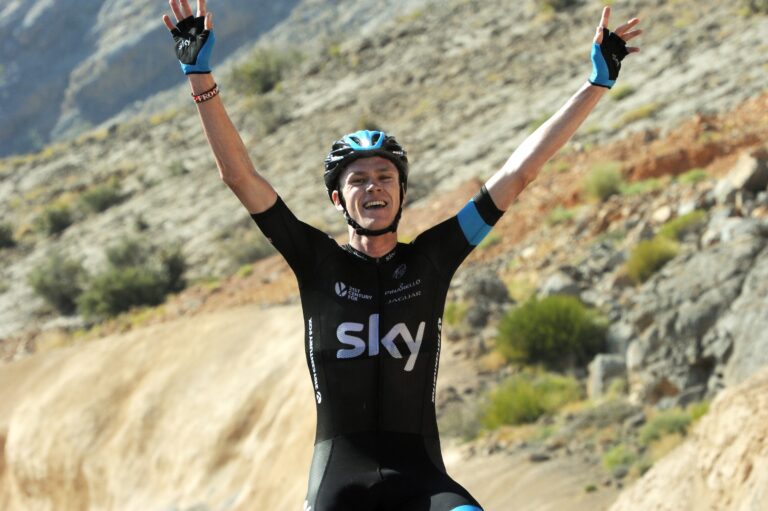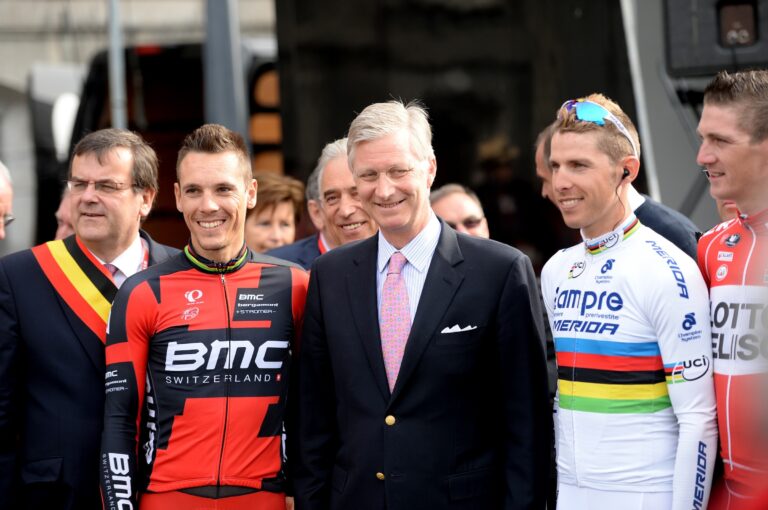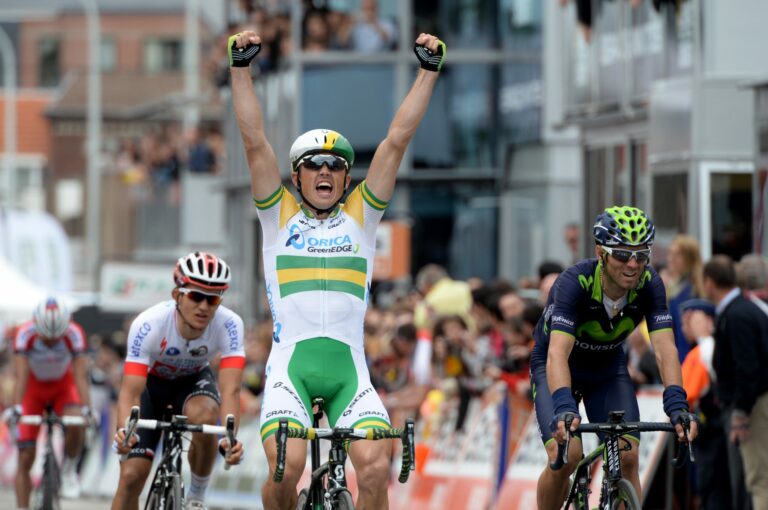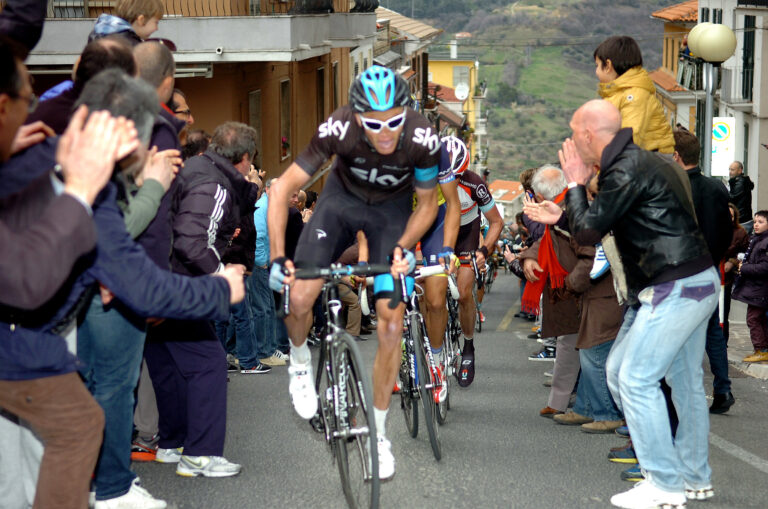The Tour of Britain 2014 will include the “toughest summit finish yet” on The Tumble in Wales after the route for the eleventh edition of the race was unveiled in London.
Great Britain’s national tour has been upgraded to 2.HC status by the UCI, elevating it to the same status as events like the Criterium International and Tour of California, and this year’s route is a reflection of a race which has significantly grown in prominence since returning to the calendar in 2004.

New era
Race director Mick Bennett believes the upgraded status has been long overdue. It brings with it a “new era” for the race, he says, and makes the Tour of Britain one of the top ten non-WorldTour stage races.
“With our toughest summit finish yet, an individual time trial in London and several longer stages, this year’s Tour of Britain has a varied and testing route that will present opportunities to a variety of riders,” said Bennett. You can read Bennett’s thoughts on each of the eight stages via the links at the bottom of the page.
The upgraded status also brings with it a bigger prize fund and, more significantly, a bigger pot of UCI points available to teams and riders and Bennett told RoadCyclingUK the 2014 edition has received unprecedented interest, with nine WorldTour squads already confirmed (Belkin, BMC Racing, Cannondale, Garmin-Sharp, Movistar, Omega Pharma-QuickStep, Giant Shimano, Team Sky and Tinkoff-Saxo), as well as a Great Britain national squad.
Eighteen teams will take to the start line in total and Bennett also hopes to have all of the UK’s five UCI Continental-registered squads involved, though each must earn their place, he says. “Our desire is to have all five Continental teams in the race – but we don’t want to make it easy,” said Bennett. “We want them to prepare for the event and we want them to take their selection down to the wire but it’s highly unlikely they’ll be left out and it’s part of our commitment to support [domestic teams].”
The eight-stage race has also been moved forward by one week – Sunday September 7 to Sunday September 14 – to avoid a clash with the World Team Time Trial Championships and Bennett expects the switch to bolster the quality of a field which already included eventual champion Bradley Wiggins and Tour de France runner-up Nairo Quintana in 2013.
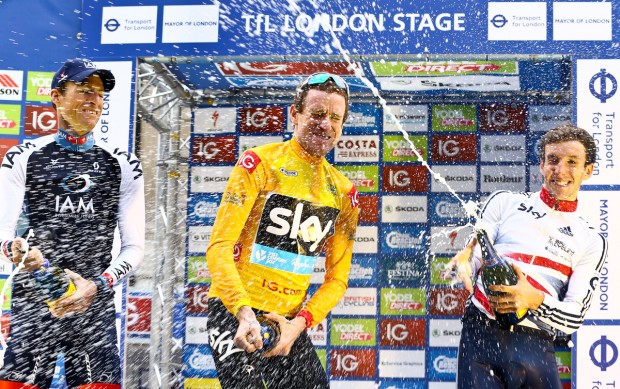
Compact route
The compact nature of the route is also a reflection of the Tour of Britain’s new-found status. The Tour of Britain’s organisers, Sweetspot, have come under pressure from British Cycling and the UCI to reduce the length of transfers between stages and the race will respond by visiting regions on a biennial basis, so expect to see Scotland, which hosted the depart in 2013, and the north and east of England, which this year will host the Tour de France and inaugural Women’s Tour respectively, on the route in 2015.
“It’s a very westerly route this year and that’s something we acknowledge,” said Bennett. “The next five years will be exciting times” – referring to Sweetspot’s renewed tender to run the race – “and we’re in year one of a five year plan.
“We’ve reduced transfers again and this has a natural consequence of compressing the overall route. We look forward to being back in Scotland and the north and east of England in 2015. Over the coming years we’ll see a much greater variation in Tour routes, so while the likes of Cumbria, Scotland and the east of England don’t feature this year, you can be rest assured that they’re very much in our plans for future editions.”
Bennett also remains optimistic that the race may extend to nine or ten days in future, which will allow it to take in a greater proportion of the country.
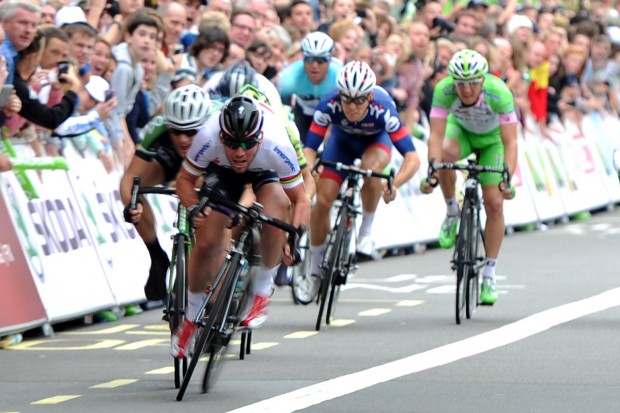
2014 parcours
Back to 2014, and the race will open with a city centre criterium in Liverpool, followed by the first road stage from Knowsley, where Wiggins laid the foundations for his 2013 triumph with victory in the individual time trial. The stage will take in the climb of the Great Orme headland but won’t finish at the summit – “it’s too extreme for stage two,” said Bennett, “we’d risk the race being all over, potentially, or it being a race of two halves” – and will instead loop round for the finale in Llandudno.
The peloton will remain in Wales for stage three, which starts in Newtown and concludes with a summit finish on The Tumble in Monmouthshire: a six kilometre climb with an average gradient of seven per cent. Following the successful format of 2013, which saw the first summit finish in the race’s modern history on Haytor, Bennett aims to include a summit finish and individual time trial in each edition of the Tour of Britain.
Bennett believes The Tumble will define the race. “It ramps up at the start,” he told RoadCyclingUK. “It’s harder than Haytor and you get crosswinds two-thirds of the way up. If you get a prevailing crosswind then it will be really split up over the top. That will be the defining moment.”
There’s still plenty of climbing to come, however, and stage four, which starts in Worcester, will also feature an uphill finish, with the one kilometre, 10 per cent climb of Bridge Valley Road on the Clifton Downs in Bristol. The race will then remain in the West Country for stage five, with a lumpy route which starts in Exeter, heads out onto Dartmoor and passes over Haytor, and finishes in Exmouth.
Stage six will see the race travel cross-country from Bath to Hemel Hempstead, before the penultimate stage from Camberley to Brighton, marking 20 years since the Tour de France visited the coastal city. The 225km stage, which includes the famous climb of Ditchling in the final kilometres, comes partly at the request of teams and riders, according to Bennett, who want a long stage to prepare for the World Road Race Championships, which will take place on September 28, exactly a fortnight after the Tour of Britain concludes.
The winner will then be crowned on the streets of London – the Tour of Britain has signed a five-year deal with Transport for London to host the final stage in the capital – with a split stage which opens with an 8.8km time trial before a criterium on the same circuit.
We caught up with race director Mick Bennett, himself a double Olympic bronze medalist in the team pursuit at the 1972 and 1976 Olympic Games, to find out his thoughts on the route. Read on for Bennett’s analysis of each stage.

